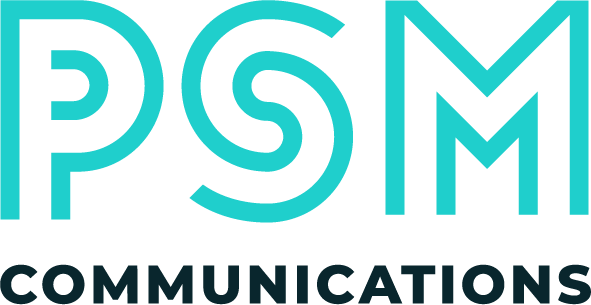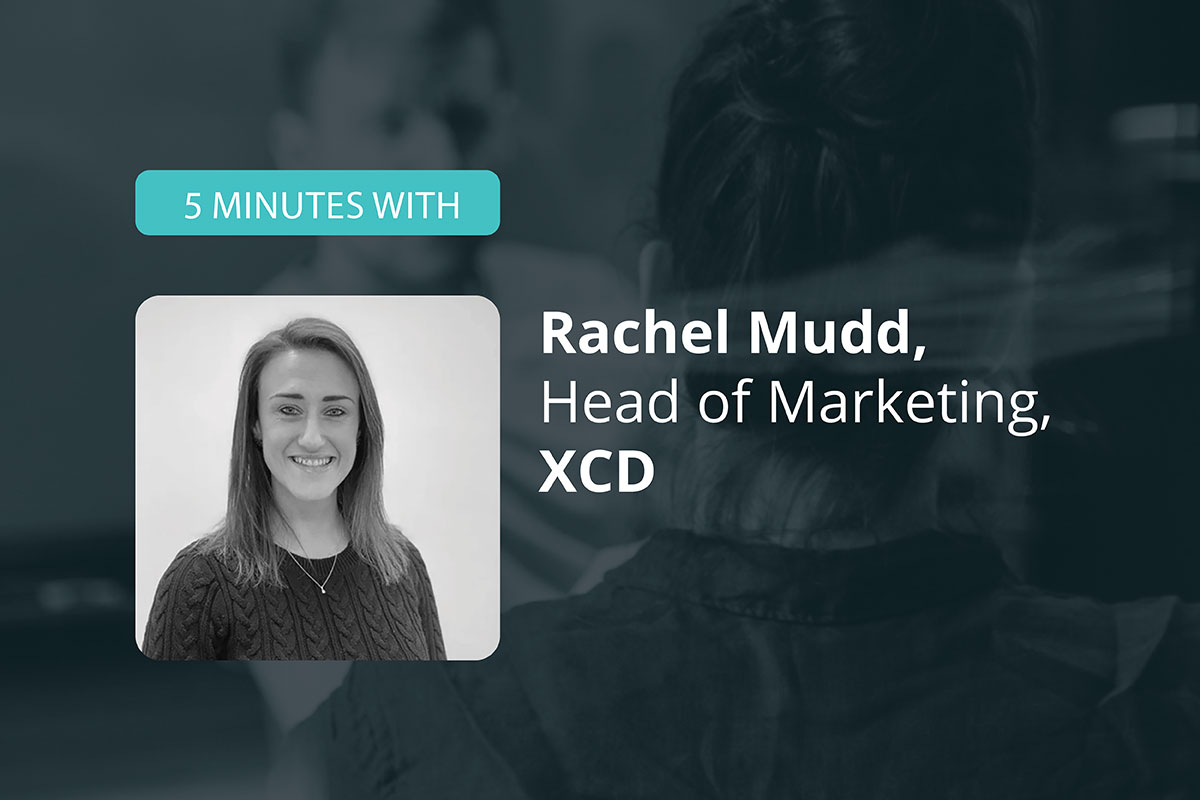This month I’m delighted to be speaking to Rachel Mudd, head of marketing at XCD, a leading cloud-based HR & Payroll platform which helps organisations manage the entire employee lifecycle, from hire to retire and everything in-between.
Here’s my 5 minutes with…
What is your marketing background?
I almost fell into marketing when working in an admin role at a PR agency, and then moving over to a PR executive position. Since then I’ve worked for both brands and communications agencies, delivering integrated campaigns for businesses and organisations across energy, food and drink, charity, technology, legal, financial services, and the public sector.
What does your role at XCD involve?
As Head of Marketing, my role is to create and manage a marketing strategy that positions XCD within the marketplace, increases brand awareness and, of course, delivers qualified leads to our sales team.
You’ve been extremely successful in introducing a strong marketing and customer mindset into several organisations that you’ve worked for, how have you achieved that?
I don’t believe you can have a truly successful marketing strategy without knowing your customers and audience inside out.
I don’t believe you can have a truly successful marketing strategy without knowing your customers and audience inside out. A common mistake amongst marketers – and in fact across businesses – is often that we assume we know what our customers want, but that’s so often not correct. By speaking to customers and prospects all the time, and building close relationships, it gives marketers an insight into what is really happening within an organisation – not just what our ‘personas’ think is happening. The market and business challenges change constantly, and we need to adapt strategies to reflect this. By following this ethos I’ve been able to get some great success and create agile strategies that deliver. And, frankly, success and results gain buy-in and change mindsets.
You’ve rolled out many campaigns throughout your career, what has been the best one you have delivered and why?
I’m not sure one specific campaign stands head and shoulders above the rest, but one that I would say was the most enjoyable to work on was a multichannel event campaign that I undertook which incorporated a variety of email, PPC, print and digital advertising, pre and post event marketing and event attendance. What I enjoyed most about working on this was the testing element where we were able to identify the most successful messages and channels and drive additional traffic through it. I always enjoy tying different routes to market together and incorporating a plethora of delivery methods made it an enjoyable and interesting experience. That’s definitely one I have learnt from.
How do you measure the impact of your campaigns?
Not everyone is ready to buy right now, so for me it’s important to keep them engaged so that when they are ready, we’re front of mind.
Lead generation is the ultimate measurement for us, but that’s not so simple with multichannel campaigns. We look at engagement, how it drives traffic and how that traffic behaves. Do they engage with the next action in our campaign? Are they moving through the funnel? Do they keep coming back for more? Clicks and opens are important as they can gauge the success of an individual email but focus on the longevity of your campaign. Not everyone is ready to buy right now, so for me it’s important to keep them engaged so that when they are ready, we’re front of mind.
If you were told you could only report on 3 key metrics, what would they be?
That’s a tough one! I think I’d say my top three would be engagement rates, conversion rates and cost per sales qualified lead/ROI. This is because these are my ultimate end goal metrics, and having this insight helps us improve our processes to deliver more leads as efficiently as possible.
You’ve developed strong relationships with your sales teams, what’s the key for you to a strong marketing/sales relationship?
I always find it’s really important to have a great relationship with the sales team, at all levels. By getting to know individual personalities, challenges and aims it means I am better able to build trust, deliver what they are looking for and gain mutual respect.
It sounds obvious, but relationships! I’ve worked in many organisations where there is a chasm between sales and marketing, despite them being ‘aligned’. I always find it’s really important to have a great relationship with the sales team, at all levels. By getting to know individual personalities, challenges and aims it means I am better able to build trust, deliver what they are looking for and gain mutual respect. Once you start helping out individual salespeople (and this is true of any department really), the favour is returned. A good working relationship outside of your KPI’s allows you to build something authentic that delivers. Getting to know people, giving them your time and delivering on promises is vital.
If you could offer advice to a marketer who is perhaps struggling to build that relationship, what would it be?
Try to spend time with people one on one. This is much easier if you have a small team, but if you don’t, start with some of the more influential people in the group. Go out for lunch, have a coffee with them or try to find out what makes them tick. If you’re coming up against some friction, make a special effort. And don’t be afraid of the feedback! Ask them what you can do to better help them, what has worked with them in the past and how you can make their life easier. You’ll find a mix of personalities in a team so be sure to find different ways of communicating and sharing information, and don’t be afraid to tell them what you need too.
In your role at XCD you’ve built up strong co-marketing relationships with partner organisations, what tips/advice could you give to marketers who are trying to implement a partner marketing strategy for the first time?
Don’t expect it to be easy! It can be easy to build up a great rapport and mutual respect, but for a lot of organisations partner marketing often isn’t a priority and it falls by the wayside. Don’t be disheartened by that and try to find ways to play to your strengths. For example, if one organisation has a strong copywriter, the other could bring some of the expertise, research, or design to the table. It will take work and perseverance but be open and honest about expectations and always deliver to the best of your abilities. Try not to let things slip because of other deadlines and keep lines of communication open at all times.
How important to you have been the development of various marketing technologies in recent years?
Technology is so advanced now that marketers can deliver so much more with a smaller team – this is so vital for us. It doesn’t seem that long ago that it was revolutionary to set up automated emails and workflows, but now any tech that doesn’t have this is deemed old hat. But it comes with risks – you need to be so clear on what you want otherwise it’s easy to get swept into the technology wave and not actually achieve that much. Marketing tech is powerful and can enable you to do so much more, and report effectively on it, but I think we’ve all fallen into the trap where we’re reporting on so much that we can’t actually see the wood for the trees. Technology is powerful when you use it to support your needs – don’t let it lead you, figure out what you want and set up your system to deliver it.
There are so many technologies that now exist which pieces of marketing tech would you recommend as an absolute must for a marketing tech stack?
My colleague and I often chat about how you can have too much conflicting technology or try to be too smart with it. Be clear about what your expectations are and what you need it to assist you with. If it’s email marketing, find something that’s strongest in that area. It’s a common mistake to get an all singing and dancing platform with functionality that is a nice to have but you’ll never use. This is going to affect your bottom line. Be honest about your expectations and what you’re going to be able to achieve.
For us, email marketing, prospect scoring and automation are key. With a large database it’s so difficult to manually keep on top of things such as getting back in touch dates, contract expiry dates and activity. I want to know what stage of the buying process all of our prospects are in, and our marketing tech (we use Pardot because we’re heavily invested in the Salesforce platform as our software is built on it) allows me to easily report on who is where in our marketing funnel. Then, automation enables us to act quickly and effectively on it. We’re a relatively small team so anything that makes our lives easier and allows us to deliver more is a must.
Email is an important part of your lead generation approach, what are the fundamentals for a good email?
Always ask yourself, why does my reader care?
For me the key points to success here are keeping something short and sweet, don’t overdo imagery and HTML and make sure it’s on point. Always ask yourself, why does my reader care? This goes back to the customer challenges – don’t assume your reader will care simply because you want to sell something. Challenge yourself hard on whether it’s interesting enough, give them exactly what they need and nothing more, and test out CTA’s to find your magic formula.
Finally, what’s the best piece of marketing advice you’ve ever been given?
Know your audience. Seems obvious but this goes back to my point around customer knowledge – it’s not enough to think you know them, you have to know everything. Engage in conversations all the time – not once a quarter, or a few times a year – speak to customers and prospects on a weekly and monthly basis. Always know your industry and audience and be on top of what’s going on. Only then can you truly create outstanding campaigns.


No comment